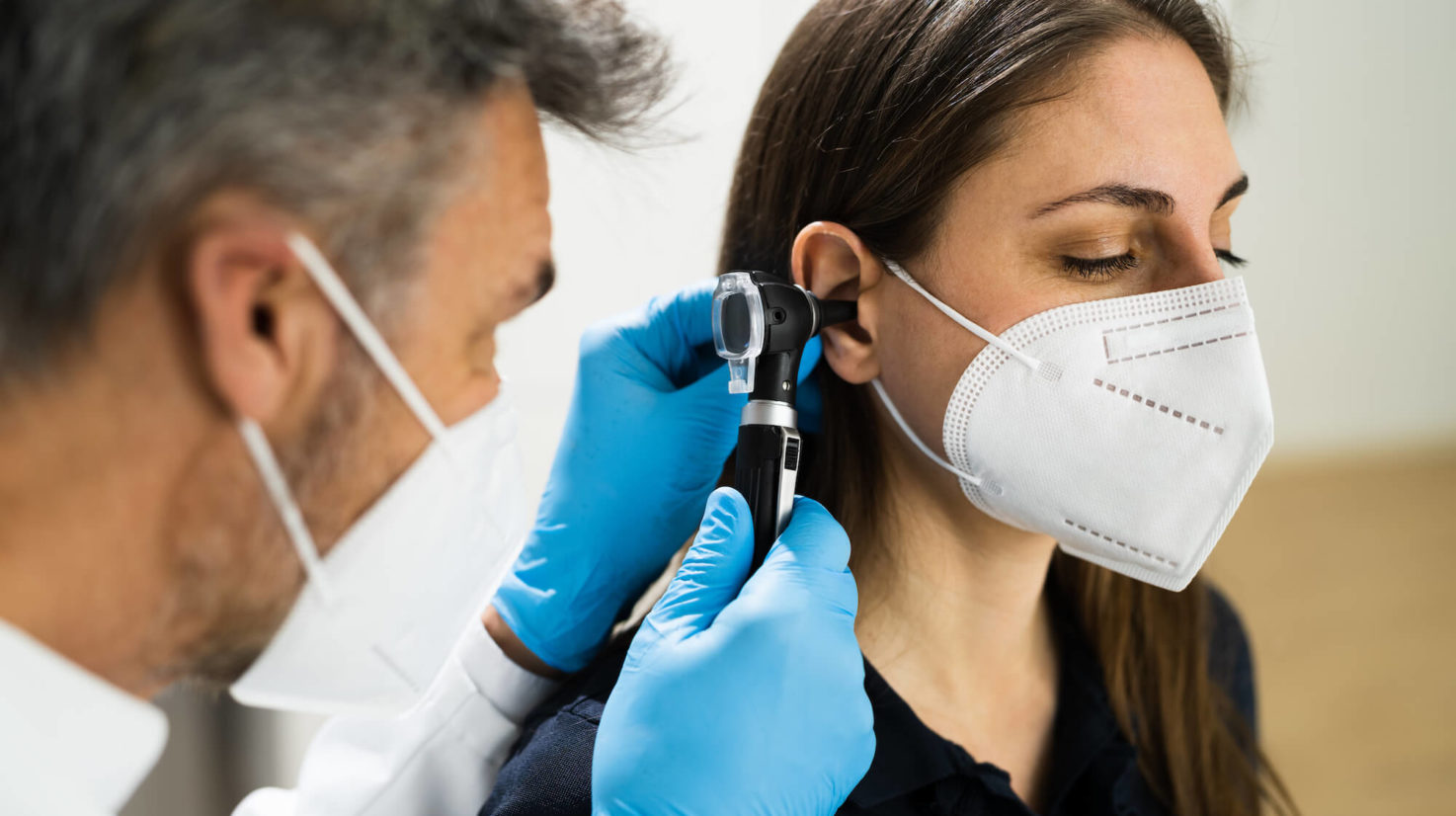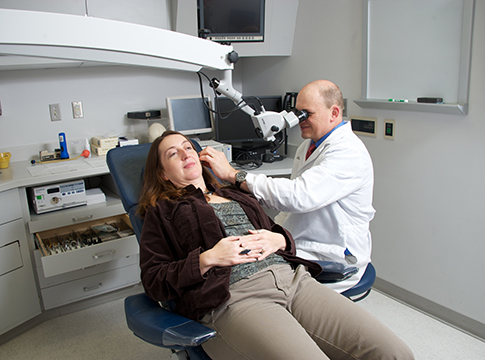The Otolaryngologist’s Role in Diagnosing Complex Head and Neck Conditions
The Otolaryngologist’s Role in Diagnosing Complex Head and Neck Conditions
Blog Article
Discovering the Field of Otolaryngology: What to Anticipate When You Speak With an ENT
Otolaryngology, frequently referred to as ENT, incorporates the medical diagnosis and therapy of throat, nose, and ear disorders. For those experiencing related issues, speaking with an ENT professional can supply clarity and relief. Comprehending what to anticipate during such assessments is necessary for efficient interaction and treatment. This summary will certainly detail key facets of the ENT experience, including usual reasons for gos to and the procedures involved in diagnosis and therapy.

Understanding Otolaryngology: A Summary
Otolaryngology, commonly described as ENT (Nose, throat, and ear) medication, is a customized branch of medicine that concentrates on the diagnosis and therapy of problems influencing these critical areas of the body. This field encompasses a variety of problems, including those related to hearing, equilibrium, respiratory feature, and speech. Otolaryngologists are trained to manage both clinical and medical therapies, utilizing sophisticated methods and innovations. Their knowledge extends past standard ailments, dealing with problems such as allergies, sinus infections, and hearing loss. Additionally, they play a vital role in the administration of head and neck cancers, giving extensive treatment customized to specific client needs. In general, otolaryngology remains essential for keeping health and high quality of life in damaged people.
Common Reasons to See an ENT Specialist
Many individuals seek the experience of an ENT professional for a variety of reasons, reflecting the varied nature of problems that impact the throat, nose, and ear. Usual problems include persistent sinusitis, which commonly leads to relentless nasal congestion and face pain. Allergies and their connected signs and symptoms, such as itching and sneezing, likewise prompt visits to these professionals (ENT). Hearing loss, whether progressive or abrupt, is an additional considerable factor for consultation. Furthermore, individuals may seek assessment for throat disorders, consisting of consistent hoarseness or ingesting difficulties. Rest apnea, identified by disturbed breathing during rest, is frequently attended to by ENT specialists too. Each of these problems highlights the value of specialized care in taking care of complicated ENT-related health issues
Preparing for Your ENT Visit
When getting ready for an ENT consultation, it is essential to gather pertinent information and think about any particular worries. Patients ought to put together a comprehensive clinical background, consisting of previous ear, nose, or throat issues, surgeries, and current medicines. Recording signs-- such as period, extent, and regularity-- can offer useful understandings for the ENT expert. Furthermore, individuals ought to prepare a list of concerns they want to ask, ensuring that all concerns are dealt with during the go to. Bringing along any kind of pertinent clinical records or examination results can even more assist the ENT in comprehending the client's problem. Clients should verify their consultation information, consisting of date, place, and time, to minimize any kind of final confusion. Correct prep work can improve the performance of the consultation and lead to much better outcomes.
What to Expect Throughout the Consultation
As the assessment starts, the client can expect to participate in a thorough discussion with the ENT expert concerning their signs and symptoms and case history. The professional will ask about the duration, frequency, and seriousness of signs and symptoms such as hearing loss, nasal congestion, or aching throat. In addition, the client's previous medical conditions, medications, and any kind of pertinent household history will certainly be reviewed, helping the specialist in creating a total understanding of the client's health and wellness. The ENT may also ask concerning way of life variables, such as exposure to irritants or irritants. This open dialogue develops a structure for the appointment, ensuring that the client's issues are dealt with and establishing the phase for any kind of necessary evaluations or suggestions for therapy.
Diagnostic Examinations and Treatments in Otolaryngology
A variety of diagnostic examinations and treatments are vital in otolaryngology to accurately review and diagnose conditions affecting the nose, throat, and ear. Common tests include audiometry, which measures hearing feature, and tympanometry, examining center ear pressure. Nasal endoscopy permits visualization of the nasal passages and sinuses, while laryngoscopy analyzes the throat and vocal cables. Imaging methods, such as CT scans and MRIs, offer comprehensive sights of head and neck frameworks. Allergic reaction testing might additionally be performed to identify triggers for sinus or breathing issues. These analysis devices allow ENT experts to create an extensive understanding of clients' conditions, ensuring tailored and effective administration strategies. Correct diagnosis is important for effective therapy outcomes in otolaryngology.
Therapy Choices Provided by ENT Specialists
ENT professionals offer a variety of therapy alternatives customized to resolve certain conditions impacting the nose, ear, and throat. These treatments vary from traditional methods, such as medicine and way of life modifications, to more intrusive procedures. Allergies might be taken care of with antihistamines or immunotherapy, while chronic sinusitis could need nasal corticosteroids or sinus surgical treatment. For hearing loss, ENT experts often suggest listening device or surgical interventions like cochlear implants. In instances of throat problems, choices can include speech therapy or surgeries to get rid of obstructions. Additionally, they might provide assistance for managing sleep apnea, including the use of CPAP tools or surgical interventions. On the whole, the objective is to improve individuals' lifestyle via individualized treatment and effective therapy methods.
When to Seek Follow-Up Care With an ENT
When to look for follow-up treatment with an ENT expert is crucial for handling continuous symptoms or issues associated to throat, ear, and nose problems, identifying. Individuals need to consider scheduling a follow-up consultation if signs persist in spite of first treatment, such as chronic ear discomfort, nasal congestion, or throat discomfort. Modifications in hearing, balance concerns, or unusual nasal discharge might also warrant additional examination. Additionally, if a patient experiences negative effects from prescribed medicines or has undergone a surgery, follow-up treatment is very important to keep track of recovery and deal with any kind of worries. Timely appointments can assure reliable management of conditions, stop possible problems, and offer comfort regarding one's health. Seeking follow-up care promotes proactive health monitoring in otolaryngology.
Regularly Asked Inquiries

What Qualifications Should I Seek in an ENT Professional?
When looking for an ENT professional, one ought to seek board certification, appropriate experience, and strong person testimonials. Additionally, reliable communication skills and a compassionate technique can significantly improve the general therapy experience.
How Do I Pick the Right ENT for My Requirements?
Choosing the best ENT specialist entails assessing their certifications, experience, and client testimonials (ENT Doctor). It is vital to ponder their communication design and technique to treatment, guaranteeing they check here align with the individual's specific wellness needs and choices
Exist Any Threats Associated With ENT Procedures?
The risks connected with ENT treatments might consist of infection, blood loss, anesthesia issues, and possible damage to bordering structures. Individuals need to review these threats with their doctor to understand individual issues and guarantee educated decisions.
Just How Can I Handle Stress And Anxiety Prior To My ENT Appointment?
To take care of stress and anxiety before a consultation, individuals can exercise deep breathing workouts, envision positive end results, prepare concerns ahead of time, and seek support from friends or family, fostering a feeling of confidence and calmness.
What Should I Do if I Experience Adverse Effects From Therapy?
If negative effects from therapy occur, the person ought to promptly report them to their doctor. Modifications to therapy or extra interventions might be needed to ensure safety and effectiveness in handling their problem - Sinus. As the consultation starts, the patient can anticipate to engage in a thorough discussion with the ENT specialist about their symptoms and medical history. These diagnostic tools allow ENT specialists to establish a thorough understanding of individuals' conditions, guaranteeing customized and reliable administration plans. ENT experts supply a variety of treatment choices tailored to attend to particular conditions influencing the ear, throat, and nose. When seeking an ENT specialist, one ought to look for board qualification, pertinent experience, and strong client testimonials. Selecting the appropriate ENT expert entails assessing their qualifications, experience, and patient evaluations
Report this page